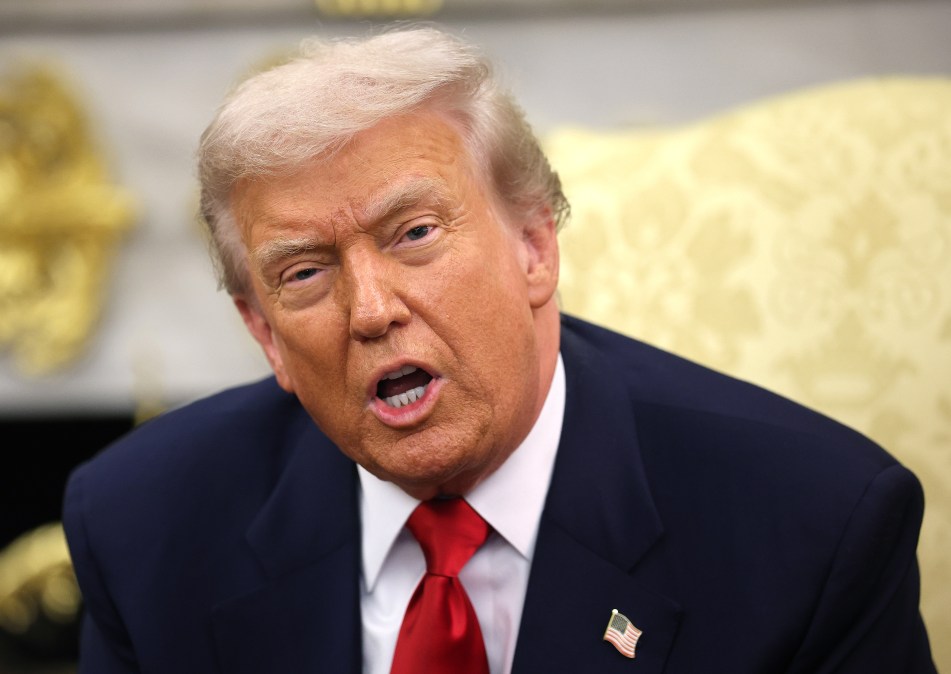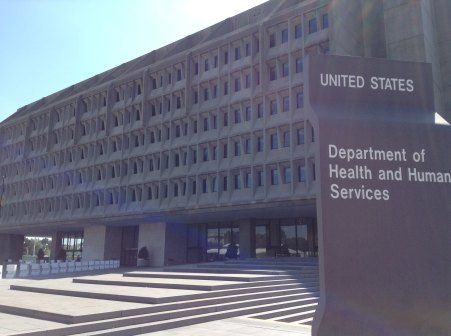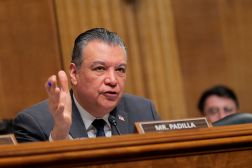Trump appears to ready executive order on state AI law preemption

President Donald Trump appears to be eyeing an executive order that would target individual state efforts to rein in artificial intelligence and initiate several actions aimed at preempting those laws.
A draft order viewed by FedScoop includes plans to establish an AI litigation task force to challenge state AI statutes, restrict funding for states with AI laws that the administration views as “onerous,” and launch efforts to preempt state laws via the Federal Trade Commission, the Federal Communications Commission, and legislation.
In response to a FedScoop inquiry about the six-page draft order, which was also marked “deliberative” and “predecisional,” a White House official said that until announced officially, “discussion about potential executive orders is speculation.” Reuters, which reported on the draft earlier, got the same response.
The document comes as long-discussed desires by the Trump administration and congressional Republicans to preempt state AI laws and clear the field for AI companies appear to be coming to a head.
Republican lawmakers are again planning to include a state AI law moratorium in the must-pass National Defense Authorization Act, and Trump, in a Tuesday social media post, voiced clear support for a federal standard to be included in the NDAA or another bill.
Under the draft — titled “Eliminating State Law Obstruction of National AI Policy” — the attorney general would create the litigation task force, which would focus solely on challenging state AI laws, including on grounds that they unlawfully regulate interstate commerce and are preempted by federal regulations.
For its part, the Commerce Department would have a mandate to evaluate existing state AI laws that conflict with the order and identify statutes that should be referred to the task force. Commerce would also be required to withhold certain funds from states with AI laws the administration deems “onerous.”
The introduction of the draft specifically calls out laws in California and Colorado.
Meanwhile, the FCC would be required to look into a federal standard for reporting and disclosure for AI models that would preempt state laws, and the FTC would apply a federal statute prohibiting unfair and deceptive acts to state laws that “require alterations to the truthful outputs of AI models.”
Finally, the draft calls for White House officials to prepare a legislative recommendation establishing a federal AI framework that would preempt state laws.
Prior to the draft, the Trump administration had already outlined some of its aspirations for restricting state efforts to regulate AI, including limits on funding. In its AI Action Plan earlier this year, the administration said the government “should not allow AI-related Federal funding to be directed toward states with burdensome AI regulations that waste these funds.”
While the document has not officially been published yet, it already has critics.
Travis Hall, the Center for Democracy Technology’s director for state engagement, said that a president can’t preempt state law via executive order. “Preemption is a question for Congress, which they have considered and rejected, and should continue to reject,” Hall said.
Earlier this year, lawmakers voted 99-1 to strip a 10-year AI moratorium from Trump’s “One Big Beautiful Bill” after that provision received pushback.
Public Citizen Co-President Robert Weissman pointed to the harms that AI can cause, including the risks it poses for emotional wellbeing and potential to contribute to suicide, as well as uses that exacerbate racial disparities in workplaces or erroneously deny health care to patients.
“For all his posturing against Big Tech, Donald Trump is nothing but the industry’s well-paid waterboy,” Weissman said.






